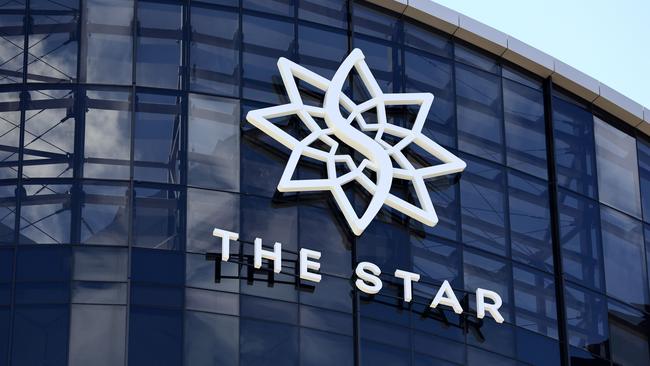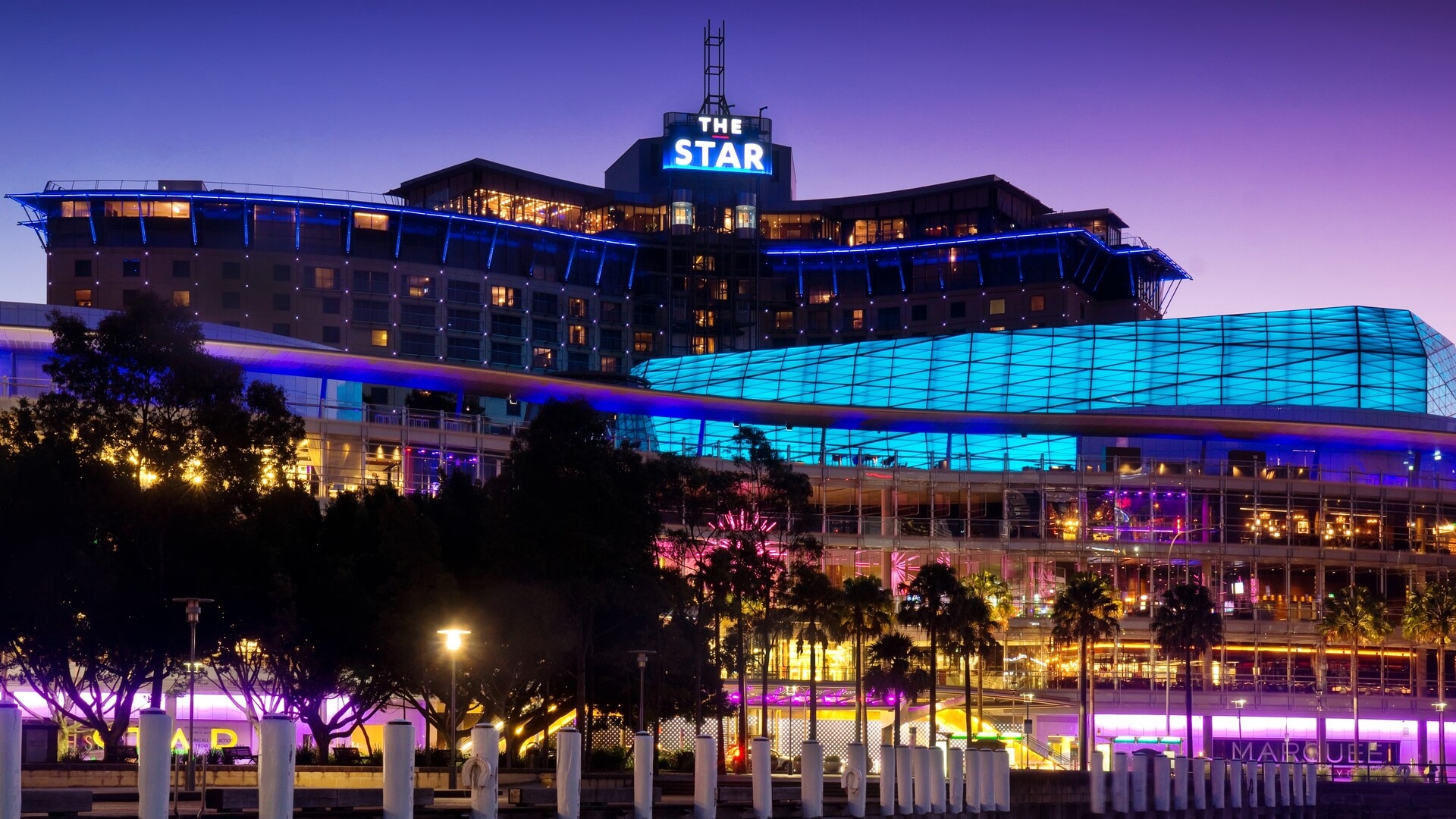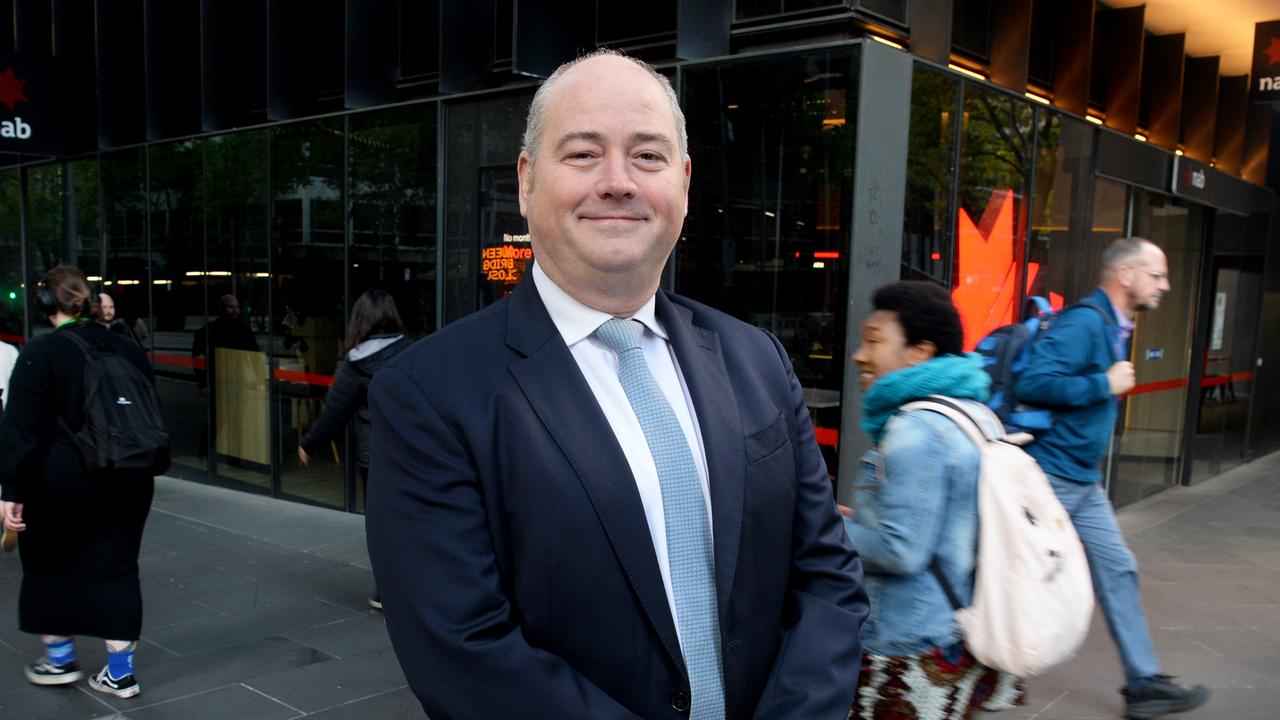
There’s another board meeting scheduled for Monday, and for the rest of this week the situation remains very fluid.
Donald Trump’s tariff shock to global markets has thrown a large spanner in the works of what was already a tenuous last-ditch rescue effort for Star from New York-listed Bally’s Corp.
Bally’s, which has a reputation as a casino buyer of last resort, has seen its own shares fall 15 per cent in last week’s market rout and is now capitalised at less than $US550m ($900m).
The rising likelihood of a US recession – now being pegged at a 50-50 chance by some economists – adds to the pressure on Bally’s already stretched balance sheet. Star has indicated it will need more than the $250m Bally’s was proposing under the convertible note to avoid a break-up situation. There’s a window for a deal to be done, but it’s extremely narrow. Earlier Monday, The Australian’s DataRoom column revealed billionaire publican Bruce Mathieson is believed to be working with Bally’s to top up its offer for Star Entertainment.

Back home, the NSW government’s refusal last week to cede security over Star’s Sydney casino to financing white knight Salter Brothers to activate a $750m loan has spooked the few remaining potential financiers Star had been banking on.
It is understood the Minns government was initially open to supporting the Salter financing when it was proposed last month, but later opposed it, fearing the casino could end up in the hands of a property developer in the event of Star defaulting.
Star’s options are now extremely limited, and each of them requires time and cash – two things it doesn’t have.
On one projection presented to the board, it is understood the casino has just enough operational funds to keep it going until early next week.
Losses are yet to be stemmed in Sydney, which is causing most of the cash drain. And there are several milestone payments on the horizon for the new Brisbane Queen’s Wharf project, which can be avoided only if it can get a complex asset swap deal away with its longstanding Hong Kong partners by the end of this month.
That deal was also relying on securing the Salter financing.
Faced with these pressures, and a new hardline stance by NSW over security on the Sydney leasehold casino, Star’s directors are fast moving to a place where they can no longer be assured to have safe harbour protections for the financial hole they find themselves in.
While Star’s board last week was pursuing talks with Bally’s, it was understood to have been working in parallel on two voluntary administration plans with board advisers FTI Consulting.
The main scenario is to put the entire company into voluntary administration, which extends to both the head stock and Star’s financing company. Under this option it will allow the three operating entities – Sydney, Brisbane and the Gold Coast and their hotels – to keep trading and administrators to pursue separate sales.
However, the issue here is an administrator will need at least $300m to keep the business running and keep 9000 jobs intact.
This will be an extremely tough call for existing lenders to put more money in, given their exposure is largely secured. Essentially, they will be putting more at risk over the security they already have.
The second scenario is to just place the Sydney casino in administration, given that’s where the biggest operational losses lie. NSW also represents the biggest hurdles in terms of regulatory regime and securing financing.

By taking the radical action of jettisoning NSW, this at least gives Star the time it needs to complete the asset swap deal in Queensland, allowing it to pursue the exit of Queen’s Wharf and focus its efforts on running the profitable Gold Coast casino.
Star’s Hong Kong partners would be open to ensuring Star has enough liquidity to trade through in Brisbane until heads of agreement can be reached over the asset swap.
Sydney “is the worst performer of the three and has the most limited prospects”, one person with knowledge of the process told The Australian. Still, under this scenario, there are a number of cross guarantees on other loans that will need to be worked through.
There are two critical dates Star faces. Its $250m bridging loan with King Street Partners expires on April 29. It needs to have larger refinancing in place to activate these funds, and on the current path this is highly unlikely.
The second is the heads of agreement with its Hong Kong Partners by April 30 covering the complex asset swap that ultimately sees Star exit its new Brisbane casino in exchange for the full ownership of two hotel towers on the Gold Coast.
The Hong Kong-listed Chow Tai Fook and Far East Consortium have already injected $45m into Star to keep it afloat during most of March. If Star pulls out of this deal, it faces a $18m break fee and the full hit on the $212m in Queen’s Wharf contributions.
And by holding on to Queen’s Wharf, it needs to be in a position to refinance $700m of debt on Queen’s Wharf, which expires in December. Star then faces a whole new set of problems, given it would be required to inject more equity to bring down the size of the loan.
The loss of the $750m Salter financing package is understood to have left the Hong Kong partners furious, as their path to certainty on Queen’s Wharf is up in the air. It puts in doubt the $45m in unsecured funds they’ve injected.
Star’s precarious situation has forced them to insulate themselves from also being exposed to potential losses from a full administration scenario. They remain keen to pursue full ownership of Brisbane, given the investment they’ve made to date.
Star’s directors face limited options in every direction they turn. Strategic decisions are essentially being made by its existing lending consortium including Westpac, Barclays, Deutsche Bank and Soul Patts who are looking for an exit ramp and are refusing to put more funds in.
The NSW government has also shown it is prepared to make an extraordinary intervention to protect its interests over an ever shrinking gaming tax stream. Although this may have come with the political risk of putting thousands of jobs in doubt.
Whichever way it turns, this week will prove to be a point of no return in the slow demise of Star.






Time really is about to run out for Star Entertainment. The board of the deeply pressured casino operator ran through options at a meeting on Friday, including war gaming, an administration scenario following last week’s collapse of its financing package.